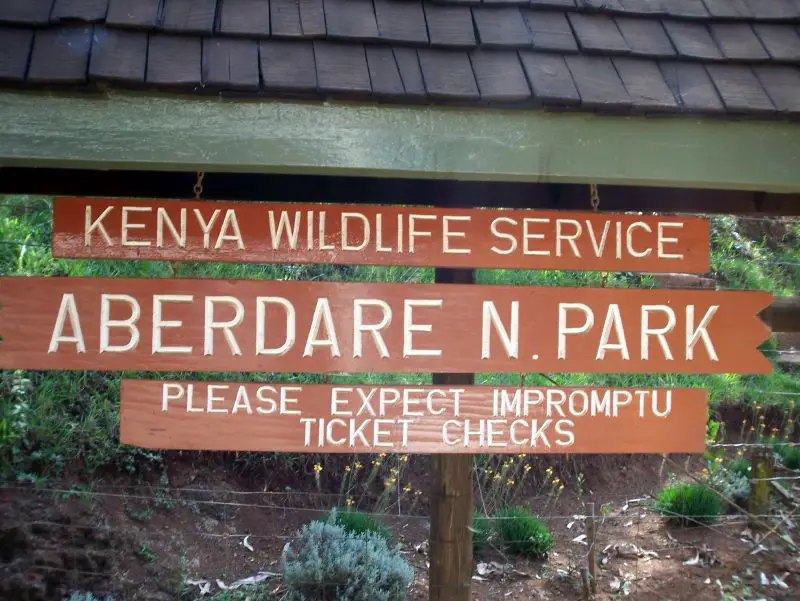Kitale town, located in Trans-Nzoia County in western Kenya, is accessible through various modes of transportation, including road, air, and to a lesser extent, rail.
As a major agricultural hub and gateway to western Kenya and eastern Uganda, Kitale’s accessibility is crucial for both economic activities and tourism. The town is well-connected to other major cities in Kenya, with improving infrastructure facilitating easier access in recent years.
What are the main modes of transportation to Kitale?
The main modes of transportation to Kitale are:
- Road
- Air
- Rail (limited service)
Each mode offers different advantages in terms of convenience, cost, and travel time.
How can one access Kitale by road?
Road access to Kitale is the most common and versatile option. The main routes include:
- Eldoret-Kitale Highway (A1): A well-maintained road connecting Kitale to Eldoret and onwards to Nairobi
- Kitale-Webuye Road: Connecting Kitale to Webuye and the western Kenya region
- Kitale-Kapenguria Road: Linking Kitale to West Pokot County and northwestern Kenya
These roads are served by various types of vehicles, including private cars, buses, and matatus (local minibuses).
What are the main bus services to Kitale?
Several bus companies operate services to and from Kitale, including:
- Easy Coach
- Modern Coast
- Guardian Bus Services
- North Rift Shuttle
- Kitale Prestige Shuttle
These companies offer both day and night services, connecting Kitale to major cities like Nairobi, Eldoret, and Kisumu.
How long does it take to travel to Kitale by road from major cities?
Travel times to Kitale by road from major cities are approximately:
| Origin City | Distance (km) | Approximate Travel Time |
|---|---|---|
| Nairobi | 390 | 6-7 hours |
| Eldoret | 75 | 1.5-2 hours |
| Kisumu | 235 | 4-5 hours |
| Nakuru | 220 | 3-4 hours |
Travel times may vary depending on road conditions and traffic.
Is air travel available to Kitale?
Yes, air travel to Kitale is available. The town is served by:
- Kitale Airport (KTL)
This airport handles domestic flights, primarily connecting Kitale to Nairobi.
Which airlines operate flights to Kitale?
Currently, the main airline operating flights to Kitale is:
- Safarilink Aviation
Flights are typically scheduled a few times a week, with increased frequency during peak seasons.
What is the flight duration from Nairobi to Kitale?
The flight from Nairobi’s Wilson Airport to Kitale Airport takes approximately:
- 50-60 minutes
This makes air travel the fastest option for reaching Kitale from Nairobi.
Is rail transportation available to Kitale?
Rail transportation to Kitale is limited:
- The nearest major railway station is in Eldoret, about 75 km away
- There are plans to extend the Standard Gauge Railway (SGR) to Kitale in the future, but this is not currently operational
At present, rail is not a direct option for accessing Kitale.
What are the road conditions like when traveling to Kitale?
Road conditions to Kitale vary:
- The Eldoret-Kitale Highway is generally in good condition, with ongoing improvements
- Secondary roads may be less well-maintained, especially during rainy seasons
- Some rural access roads can be challenging, particularly for small vehicles
Travelers should check current road conditions before embarking on their journey, especially during rainy seasons.
Are there any notable landmarks or points of interest along the route to Kitale?
Several landmarks and points of interest can be found along the routes to Kitale:
- Saiwa Swamp National Park: Located about 27 km from Kitale
- Cherangany Hills: Visible along the Eldoret-Kitale route
- Mount Elgon: Visible as you approach Kitale from various directions
- Kitale Nature Conservancy: Located near the town
- Broderick Falls: En route from Webuye to Kitale
These landmarks offer opportunities for scenic stops and tourism activities.
What accommodation options are available for travelers to Kitale?
Kitale offers various accommodation options for travelers:
- Hotels (e.g., Kitale Club, Skynest Hotel)
- Lodges (e.g., Saiwa Swamp Lodge)
- Guesthouses
- Airbnb rentals
- Camping sites (in nearby national parks)
Accommodation ranges from budget-friendly options to more upscale establishments.
How accessible is Kitale for people with disabilities?
Accessibility for people with disabilities in Kitale is improving but still faces challenges:
- Some newer buildings and hotels have wheelchair ramps and accessible facilities
- Public transportation and many older buildings may lack proper accessibility features
- The town’s infrastructure is gradually being upgraded to be more inclusive
Travelers with disabilities should inquire about specific accessibility features when planning their trip.
What are the best times of year to access Kitale?
The best times to access Kitale are generally:
- Dry seasons: December to March and July to October
- These periods offer better road conditions and more comfortable travel
However, Kitale can be accessed year-round, with appropriate precautions during rainy seasons.
How does weather affect access to Kitale?
Weather can significantly impact access to Kitale:
- Heavy rains (April-June and November) can cause road deterioration and flooding
- Visibility may be reduced during rainy periods, affecting both road and air travel
- Dry seasons generally offer easier and more reliable access
Travelers should check weather forecasts and plan accordingly, especially when traveling during rainy seasons.
What border formalities are required for international travelers accessing Kitale?
International travelers accessing Kitale need to:
- Obtain a valid Kenyan visa (available online or on arrival for eligible nationalities)
- Present a valid passport
- Comply with any current health requirements (e.g., vaccinations, COVID-19 protocols)
- Clear customs and immigration at their point of entry into Kenya
Most international travelers will enter Kenya through major airports like Nairobi or Mombasa before proceeding to Kitale.
How does access to Kitale compare with access to other major towns in western Kenya?
Here’s a comparison of access to Kitale and other major western Kenya towns:
| Town | Road Access | Air Access | Rail Access | Distance from Nairobi (km) |
|---|---|---|---|---|
| Kitale | Good | Limited | No | 390 |
| Eldoret | Excellent | Good | Yes | 310 |
| Kisumu | Good | Good | Yes | 350 |
| Kakamega | Good | No | No | 355 |
Kitale’s access is comparable to other major towns, with room for improvement in air and rail connectivity.
What future developments are planned to improve access to Kitale?
Several developments are planned or underway to improve access to Kitale:
- Upgrading and expansion of Kitale Airport
- Improvement of the Eldoret-Kitale Highway
- Potential extension of the Standard Gauge Railway (SGR) to Kitale
- Development of bypasses to ease traffic congestion in the town
- Improvement of rural access roads in Trans-Nzoia County
These developments aim to enhance Kitale’s connectivity and support its economic growth.
In conclusion, access to Kitale town is primarily facilitated through road networks, with limited air travel options also available. The town’s strategic location as a gateway to western Kenya and eastern Uganda makes it an important destination for both business and leisure travelers.
While current access options are functional, ongoing and planned infrastructure improvements promise to enhance Kitale’s accessibility in the coming years. Travelers to Kitale should consider factors such as weather conditions, travel time, and personal preferences when choosing their mode of transportation.
As the town continues to develop, it is likely to see improved connectivity, further solidifying its position as a key urban center in western Kenya.



